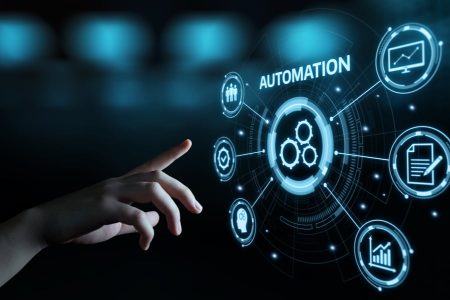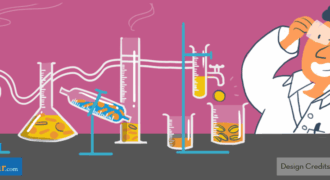Walk into any modern workplace today—whether it’s a buzzing tech startup, a local logistics hub, or even a traditional accounting firm—and you’ll notice something remarkable. The quiet hum of efficiency isn’t just powered by people anymore. It’s powered by artificial intelligence. From automating routine tasks to reshaping entire workflows, AI has become the invisible colleague transforming how business gets done.
The once-futuristic idea of automation taking over mundane processes is no longer a prediction—it’s a reality shaping daily operations across industries. But the question remains: is AI simply making work faster, or is it redefining what work truly means?
The Rise of the Digital Workforce
For decades, automation was confined to manufacturing floors—robotic arms assembling cars or packaging goods. Today, AI has stepped into offices, customer service departments, marketing teams, and even HR. Algorithms analyze data, chatbots assist customers, and machine learning systems make decisions once left to managers.
In the finance sector, AI now manages risk analysis, detects fraud in milliseconds, and automates compliance reports that used to take teams weeks to prepare. In marketing, AI tools predict consumer behavior, personalize ad campaigns, and even write product descriptions with uncanny accuracy.
What used to be considered “busy work” is now the domain of smart machines, freeing humans for what they do best—strategic thinking, creativity, and connection.
The New Rhythm of Productivity
AI hasn’t just changed what we do; it’s changing how fast we do it. The efficiency curve has steepened dramatically. Tasks that once demanded hours can now be completed in minutes. Automated workflows ensure that operations run 24/7 without fatigue or error.
Consider a small e-commerce brand. With AI tools, they can automate inventory management, process returns, handle customer queries through chatbots, and even predict demand surges before they happen. The result? A leaner, more agile business that scales without adding staff.
But here’s the catch: speed isn’t the whole story. The real power of AI lies in augmentation, not replacement. When humans and machines collaborate—humans providing intuition and empathy, AI providing precision and speed—the outcome is far greater than either could achieve alone.
The Human Element: Irreplaceable and Evolving
Despite fears of job displacement, AI has opened a different door. Rather than replacing workers wholesale, it’s redefining roles. Employees are moving from repetitive tasks to more analytical and creative functions.
Take customer support, for instance. Chatbots now handle FAQs and routine inquiries, while human agents tackle complex emotional interactions where empathy matters most. AI doesn’t eliminate the human touch—it amplifies it by removing the noise and letting people focus on value-driven work.
Similarly, in HR, AI streamlines resume screening and onboarding paperwork, giving managers more time to engage with employees meaningfully. In healthcare, AI assists in diagnostics while doctors focus on patient care. Across industries, we’re seeing the rise of “human-in-the-loop” systems, where people and machines work in tandem.
It’s no longer about fearing automation—it’s about learning to lead it.
Small Businesses, Big Gains
One of the most underreported shifts is how AI has democratized efficiency. What was once a privilege of corporations with million-dollar tech budgets is now available to small businesses through cloud-based AI tools.
Platforms like ChatGPT for content generation, Salesforce Einstein for analytics, and Zapier for workflow automation allow small teams to perform with the agility of a large enterprise.
Imagine a local bakery using AI to predict peak sales days, optimize ingredient purchases, and send personalized promotions to loyal customers. Or a small accounting firm automating bookkeeping so staff can focus on client strategy. AI is the great equalizer, helping small businesses compete on a global scale.
Challenges on the Road to Automation
Of course, AI’s integration isn’t without growing pains. Data privacy concerns, algorithmic bias, and the potential for over-automation pose real risks. Businesses that rush to replace people with AI often face backlash—both internally from employees and externally from customers who still crave human interaction.
Moreover, automation demands continuous learning. Employees need upskilling to adapt to new tools, and companies must invest in ethical frameworks to ensure responsible AI deployment. It’s not just about installing software; it’s about building trust in technology.
The companies that succeed will be those that embrace transparency—clearly communicating when and how AI is used, and ensuring it serves, not replaces, the customer experience.
The Future of Work: Humans Leading, Machines Supporting
So, what does the future look like? Experts agree: AI won’t replace people—it will replace tasks. Jobs will evolve, not disappear. The roles that thrive will be those focused on judgment, empathy, creativity, and emotional intelligence—qualities machines can mimic but never truly master.
Already, new job titles are emerging: AI trainers, automation ethicists, data translators, and digital workflow designers. The skills of tomorrow will blend technology fluency with human intuition.
Businesses that recognize this shift aren’t just automating processes—they’re reimagining work itself.
The Bottom Line
Artificial intelligence isn’t the future of work—it’s the present. It’s in our inboxes, our workflows, and our boardrooms. But the most successful organizations will be those that treat AI not as a replacement, but as a collaborator.
The secret to thriving in this new era isn’t to fear automation—it’s to humanize it. By using AI to enhance what people do best—think, connect, and create—businesses can build a workplace that’s not just more efficient, but more inspired.
In the end, AI isn’t taking over the office—it’s helping us build a smarter, more human one.




